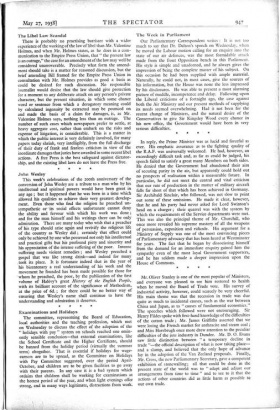In reply, the Prime Minister was as lucid and forceful
as ever. His emphatic assurance as to the fighting quality of the R.A.F. was universally welcomed. He had, however, an exceedingly difficult task and, as far as could be judged, his speech failed to satisfy a great many Members on both sides. He denied that the Government had abandoned their aim of securing parity in the air, but apparently could hold out no prospects of realisation within a measurable future. In particular, he did not meet the central and vital criticism that our rate of production in the matter of military aircraft falls far short of that which has been achieved in Germany. Sir Archibald Sinclair, who followed, was not slow to point out some of these omissions. He made it dear, however, that he and his party had never asked for Lord Swinton's head on a charger ; their quarrel was with the system by which the requirements of the Service departments were met. This was also the principal theme of Mr. Churchill, who once more revealed his supreme mastery of all the weapons of persuasion, exposition and ridicule. His argument for a Ministry of Supply was one of the most convincing pieces of Parliamentary advocacy that has been heard at Westminster for years. The fact that he began by dissociating himself from the demand for an immediate enquiry gained him the sympathy even of the most loyal Government supporters, and he has seldom made a deeper impression upon the House of Commons.
* *


















































 Previous page
Previous page